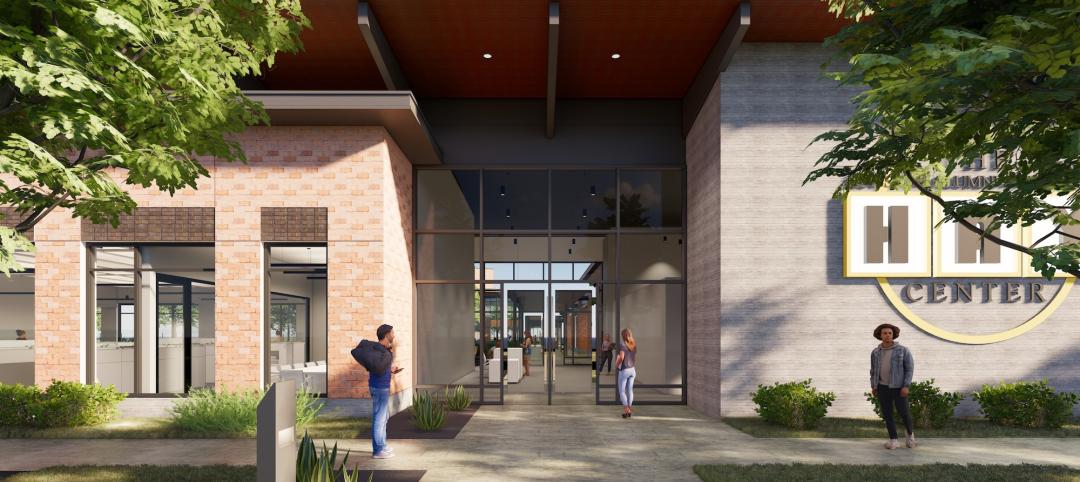Claims, disputes, arbitration, litigation: these are dreaded procedural pitfalls that often dog construction projects large and small. Not only are they time-consuming to work through, but they’re costly, too: The National Research Council estimates that $4B to $11B is spent annually in resolving these cases in the U.S. market.
At the North American office of Rider Levett Bucknall, the approach we take to avoid or minimize the number of conflicts that end up in post-project arbitration or litigation dispute often centers on using Project Neutrals or independent Dispute Review Boards (DRB).
These individuals are trained, neutral advisors who focus solely on the project, not on any one party’s position. Part psychiatrist, part negotiator, DRBs and Project Neutrals understand, manage, and resolve conflicts caused by normal construction processes in order to avoid disputes. They work with owners, architects, contractors, and consultants to transition the industry-collective mindset from conflict to conflict resolution, and ultimately to dispute avoidance.
Here are five core practices that Project Neutrals and DRBs utilize to keep the peace, while keeping a project on-track.
1. Develop trusting relationships with each stakeholder. When trust levels are high, people tend to be less defensive and are more willing to share information to help find a mutually acceptable solution to a problem. If parties mistrust one another, they often act defensively, focusing solely on their own needs and interests. Creating a working relationship that is trust-based makes conflict management and resolution easier.
2. Play an active, integrated role in the overall project team. If you want to be prepared to handle conflicts, it’s important not to sit passively on the sidelines during the design and construction process. Connecting regularly—through meetings, emails, and phone calls—with key players from the start of a project can establish you as a familiar, concerned, and impartial presence, rather than a biased opportunist or outlier.
3. Communicate clearly. The sheer quantity of documentation and communication generated by construction projects can be massive; the quality of those documents, in terms of clarity and meaning, can be ambiguous, inflammatory, or even overwhelming. Using simple and considerate language can avoid small misunderstandings—and keep them from escalating into major conflicts.
4. Treat all parties equally and fairly. If you demonstrate competence, honesty, and respect for the project and all its stakeholders, people will be confident in your ability to protect their interests and provide fair advice, recommendations, and guidance. This empowers each party to be open to conflict resolution, secure in the knowledge that, if necessary, you can be relied upon to provide sincere and balanced feedback.
5. Serve as a resource to help stakeholders explore mutually acceptable solutions.It’s not easy to challenge the traditionally adversarial culture of the construction industry. If you present people with reasonable and effective options to the expensive, ingrained blame game that pervades the business, you’ll earn the esteem of your professional colleagues and be recognized as a leader in the field.
Employed regularly, these fundamental dispute-avoidance techniques can bring a new harmony to construction projects, resulting in streamlined schedules and enhanced bottom lines.
About the Author: John T. Jozwick, Esq., is Senior Vice President and General Counsel for Rider Levett Bucknall North America. With more than 35 years in the industry, Jozwick provides advisory services to owners, contractors, subcontractors, design professionals, sureties, and attorneys relating to construction projects and disputes. He serves clients as an expert witness, provides alternative dispute resolution services as Arbitrator or Mediator, and provides construction dispute avoidance services as a Dispute Review Board member, Project Neutral, or Independent Certifier.
Related Stories
Affordable Housing | Jul 27, 2023
Houston to soon have 50 new residential units for youth leaving foster care
Houston will soon have 50 new residential units for youth leaving the foster care system and entering adulthood. The Houston Alumni and Youth (HAY) Center has broken ground on its 59,000-sf campus, with completion expected by July 2024. The HAY Center is a nonprofit program of Harris County Resources for Children and Adults and for foster youth ages 14-25 transitioning to adulthood in the Houston community.
Hotel Facilities | Jul 27, 2023
U.S. hotel construction pipeline remains steady with 5,572 projects in the works
The hotel construction pipeline grew incrementally in Q2 2023 as developers and franchise companies push through short-term challenges while envisioning long-term prospects, according to Lodging Econometrics.
Sustainability | Jul 27, 2023
USGBC warns against building energy code preemptions, rollbacks
In a recent editorial, the USGBC cited a growing number of U.S. state legislators who are “aiming to roll back building energy code standards and/or preempt local governments from advancing energy-efficient building codes.”
Resiliency | Jul 27, 2023
'Underground climate change' can damage building foundations, civil infrastructure
A phenomenon known as “underground climate change” can lead to damage of building foundations and civil infrastructure, according to a researcher at Northwestern University. When the ground gets hotter, it can expand and contract, causing foundations to move and sometimes crack.
Adaptive Reuse | Jul 27, 2023
Number of U.S. adaptive reuse projects jumps to 122,000 from 77,000
The number of adaptive reuse projects in the pipeline grew to a record 122,000 in 2023 from 77,000 registered last year, according to RentCafe’s annual Adaptive Reuse Report. Of the 122,000 apartments currently undergoing conversion, 45,000 are the result of office repurposing, representing 37% of the total, followed by hotels (23% of future projects).
Hotel Facilities | Jul 26, 2023
Hospitality building construction costs for 2023
Data from Gordian breaks down the average cost per square foot for 15-story hotels, restaurants, fast food restaurants, and movie theaters across 10 U.S. cities: Boston, Chicago, Las Vegas, Los Angeles, Miami, New Orleans, New York, Phoenix, Seattle, and Washington, D.C.
Sports and Recreational Facilities | Jul 26, 2023
10 ways public aquatic centers and recreation centers benefit community health
A new report from HMC Architects explores the critical role aquatic centers and recreation centers play in society and how they can make a lasting, positive impact on the people they serve.
Multifamily Housing | Jul 25, 2023
San Francisco seeks proposals for adaptive reuse of underutilized downtown office buildings
The City of San Francisco released a Request For Interest to identify office building conversions that city officials could help expedite with zoning changes, regulatory measures, and financial incentives.
Urban Planning | Jul 24, 2023
New York’s new ‘czar of public space’ ramps up pedestrian and bike-friendly projects
Having made considerable strides to make streets more accessible to pedestrians and bikers in recent years, New York City is continuing to build on that momentum. Ya-Ting Liu, the city’s first public realm officer, is shepherding $375 million in funding earmarked for projects intended to make the city more environmentally friendly and boost quality of life.
Market Data | Jul 24, 2023
Leading economists call for 2% increase in building construction spending in 2024
Following a 19.7% surge in spending for commercial, institutional, and industrial buildings in 2023, leading construction industry economists expect spending growth to come back to earth in 2024, according to the July 2023 AIA Consensus Construction Forecast Panel.

















